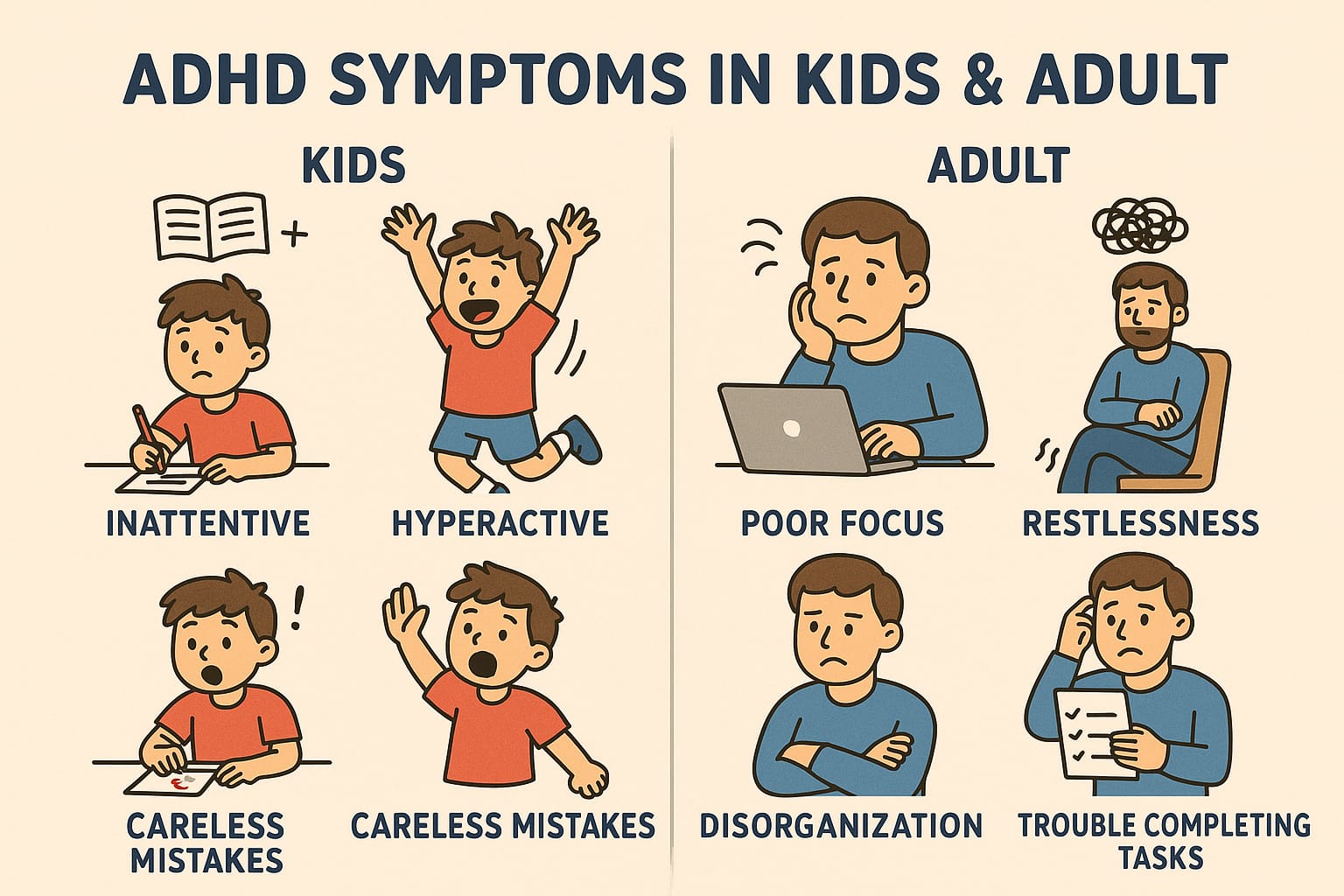Online ADHD treatment offers a convenient and accessible way for individuals to receive diagnosis and care without the delays of traditional in-person visits. Through virtual assessments, licensed healthcare providers can evaluate symptoms, provide diagnoses, and develop personalized treatment plans quickly.
This approach often includes medication management, therapy, and accommodations tailored to each patient’s needs, making it a practical option for many. With platforms available across various regions, individuals can access evidence-based care from home, saving time and reducing barriers to treatment.
As interest grows in remote healthcare, online ADHD treatment continues to evolve, integrating technology and expert care to support those seeking help efficiently and responsibly.
How Online ADHD Treatment Works
Online ADHD treatment uses structured steps, from evaluation to ongoing care, all managed virtually. It offers convenience while maintaining thoroughness through digital tools and expert oversight.
Assessment and Diagnosis Process
The process begins with a comprehensive digital intake, where individuals complete detailed questionnaires about their symptoms, history, and challenges. Licensed providers then review this information, often supplemented by video interviews or standardized assessment tools.
This evaluation helps determine if the symptoms meet diagnostic criteria for ADHD. Some platforms provide official diagnosis based on clinical guidelines, allowing individuals to move forward with treatment without visiting a physical office.
Secure data handling and confidentiality are priorities throughout the process. Timely feedback ensures patients understand their diagnosis and next steps clearly.
Personalized Treatment Plans
Once diagnosed, treatment plans are tailored to the individual’s specific needs. These plans typically combine behavioral strategies, coaching, and support resources adapted to daily life challenges.
Many online programs incorporate ADHD coaching to improve skills like time management and organization. Therapy options may also focus on managing emotional regulation and impulsivity.
Plans can be adjusted over time based on progress and evolving needs. The emphasis is on flexible, practical interventions that fit the person’s lifestyle while addressing core symptoms.
Medication Management Options
Some platforms offer medication management services, including prescriptions for common ADHD medications like stimulants. Patients can consult with psychiatrists or nurse practitioners via secure video calls.
Before prescribing, providers thoroughly review medical history and symptom profiles to ensure appropriate care. Follow-up appointments monitor efficacy, side effects, and necessary dosage adjustments.
Insurance coverage and affordable pricing can be factors in choosing an online service. Medication management is integrated with behavioral therapies and coaching for a comprehensive approach.
Benefits and Considerations of Online ADHD Care
Online ADHD treatment offers practical advantages but also requires careful attention to certain factors. These include how easily patients can access care, the protection of their personal information, and the credibility of the providers they choose.
Accessibility and Convenience
Online ADHD care removes many geographic and scheduling barriers. Patients can connect with specialists regardless of location, which is especially helpful for those in rural or underserved areas.
Flexible appointment times allow treatment to fit around work, school, or family commitments. This flexibility can help maintain consistent care, an important part of managing ADHD symptoms over time.
Medication management, therapy, and coaching are all possible online, often reducing wait times. Some platforms also accept insurance or offer affordable payment plans, increasing access further.
Privacy and Confidentiality
Online ADHD treatment platforms must comply with healthcare privacy laws like HIPAA in the U.S. This means patient data is encrypted and securely stored to prevent unauthorized access.
Patients should verify that their provider uses secure video and communication tools. They also need to be aware of the platform’s privacy policies and how their information may be used.
Maintaining confidentiality also depends on patients’ environment. Privacy during sessions requires a quiet, private space at home or elsewhere to protect conversations from being overheard.
Selecting Qualified Providers
Choosing a reputable online provider is critical for accurate diagnosis and effective treatment. Patients should look for licenses, board certifications, and verified credentials.
Providers that offer a range of services—such as diagnostic assessments, medication management, and therapy—tend to be more comprehensive. It is important to confirm the provider’s experience with ADHD specifically.
Reviews and patient feedback can provide additional insight. Some platforms specialize in populations like children or women, which may be a better fit depending on individual needs.



